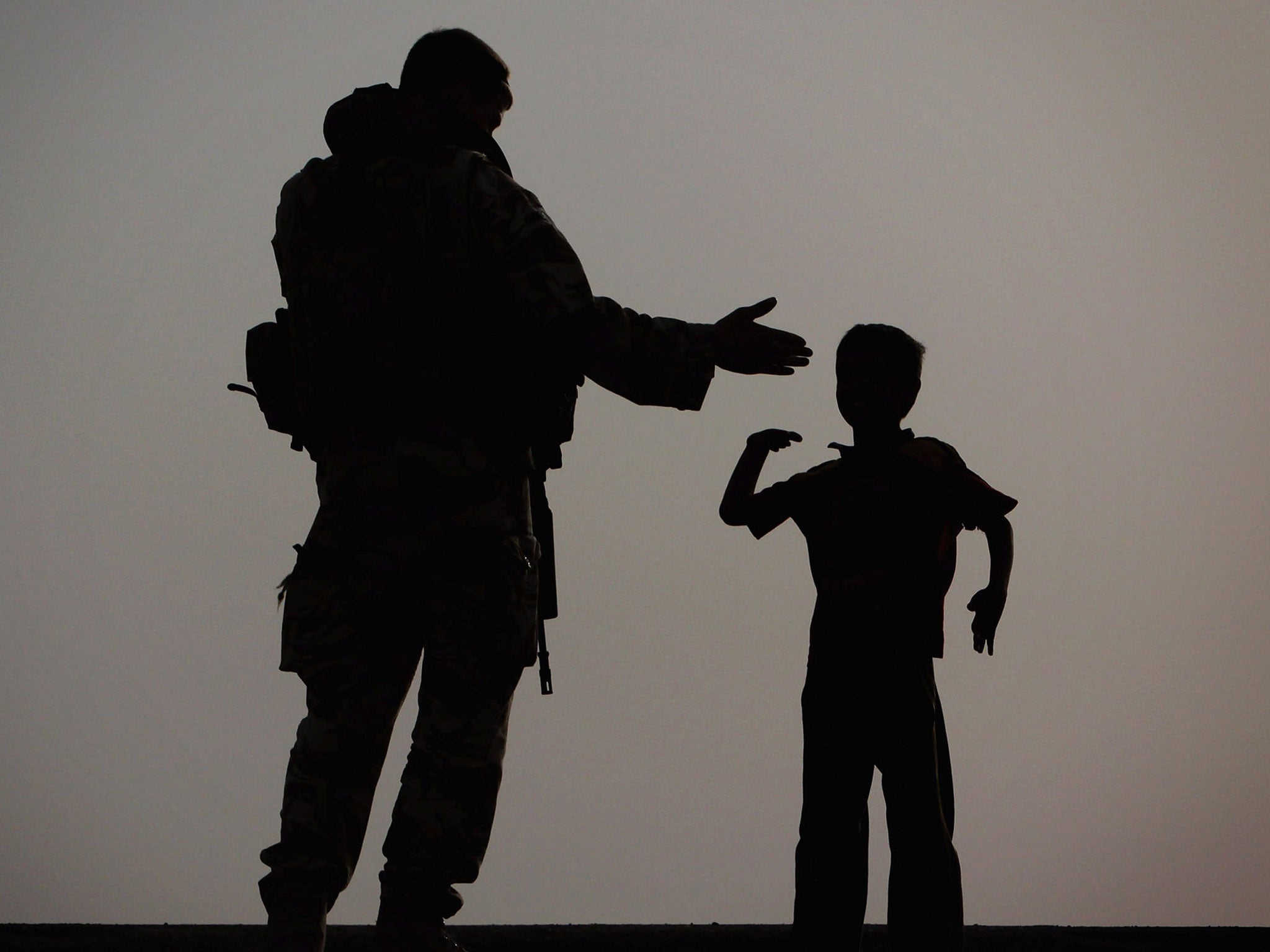Iraq war damaged Britain, says new poll
Majority say the invasion, 10 years ago, hurt the UK's reputation, but remain in favour of armed intervention when justified

Your support helps us to tell the story
From reproductive rights to climate change to Big Tech, The Independent is on the ground when the story is developing. Whether it's investigating the financials of Elon Musk's pro-Trump PAC or producing our latest documentary, 'The A Word', which shines a light on the American women fighting for reproductive rights, we know how important it is to parse out the facts from the messaging.
At such a critical moment in US history, we need reporters on the ground. Your donation allows us to keep sending journalists to speak to both sides of the story.
The Independent is trusted by Americans across the entire political spectrum. And unlike many other quality news outlets, we choose not to lock Americans out of our reporting and analysis with paywalls. We believe quality journalism should be available to everyone, paid for by those who can afford it.
Your support makes all the difference.More than half the British public believes involvement in the Iraq war damaged the country's reputation around the world, a new poll reveals today.
On the 10th anniversary of the invasion, the survey by King's College London (KCL) and Ipsos Mori shows opposition to UK involvement is the majority view. But most people still think the UK should intervene abroad when justified.
The public's view of whether the war in Iraq was justified has shifted over the years. Polling trends show support peaked at over 60 per cent in favour in April 2003 after the fall of Baghdad, but by 2007, 83 per cent opposed the war, driven by the feeling that the public had been deceived, particularly by the then Prime Minister, Tony Blair.
Some 52 per cent said the war had damaged the UK's standing, and four in 10 thought it had made the world a more dangerous place.
However, in an article for The Independent on Sunday today, the Liberal Democrat leader, Nick Clegg, insists that the Iraq experience should not prevent the UK intervening in conflicts around the world – including the Syrian civil war.
"Iraq means we have to be alert to the complexity of the situation in Syria, with its disparate opposition groups and rival agendas," the Deputy Prime Minister writes. "But it does not mean standing by."
The extent of public hostility to the invasion of Iraq comes as a series of official reports have raised questions over the country's progress in key areas of development, including health, education and human rights.
Last week, a UN assessment of Iraqi performance against key "millennium development goals" (MDGs) found "a mixed picture", saying Iraq had made major achievements in reducing extreme poverty and increasing gender equality. But school enrolment rates had dropped 2 per cent from the 91 per cent recorded in 1990, and infant and maternal mortality rates still lagged behind targets. Life expectancy fell from 68 in 2000 to 66 in 2009, according to figures from the World Health Organization.
The Iraq expert Fanar Haddad, who will speak at a London conference on the 10th anniversary this week, said the country had "exchanged one catastrophe for another" in 2003. "A businessman will most likely have a more positive view due to the opening up of Iraq to the outside world and the improved economic conditions. However, this has to be contrasted with the very real security worries and the continuing failure to provide decent services and the staggering corruption that eats away at Iraqi governance."
Jane Kinninmont, a regional expert at Chatham House, said: "Levels of violence have fallen since the civil war of 2006-07, but on average 12 people a day died last year."
John Gearson, professor of national security studies at KCL, said: "[The fact that] over 75 per cent of the public state the UK should intervene when UK interests are directly threatened or human rights are at stake suggests this is still not a country that believes it should be inward-looking and leave the world to sort itself out while the UK concerns itself with home defence."
Join our commenting forum
Join thought-provoking conversations, follow other Independent readers and see their replies
Comments